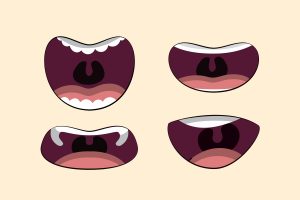What is Dysphagia?
Dysphagia is the difficulty in swallowing food, liquids, or even saliva. It may present as a sensation of food getting stuck in the throat or chest, difficulty swallowing, or even pain while swallowing. Dysphagia is not a disease itself but a symptom of other disorders affecting the swallowing process.
Types of Dysphagia
-
Oropharyngeal Dysphagia: Difficulty initiating the swallow. This is related to problems in the mouth and throat and can be caused by neurological disorders such as Parkinson’s disease, stroke, or conditions affecting the nerves and muscles.
-
Esophageal Dysphagia: Sensation of food being stuck in the esophagus. Causes include esophageal stenosis, gastroesophageal reflux disease (GERD), or the presence of tumors.
Common Symptoms
-
Pain while swallowing
-
Feeling that food or liquids are stuck
-
Coughing or choking when swallowing
-
Regurgitation of food
-
Unexplained weight loss
Causes of Dysphagia
-
Neurological disorders (stroke, multiple sclerosis, Parkinson’s disease)
-
Muscle or nerve injuries
-
Gastroesophageal reflux (GERD)
-
Tumors in the esophagus
-
Damage to muscles or nerves responsible for swallowing
 Treatment of Dysphagia
Treatment of Dysphagia
The treatment depends on the underlying cause and may include swallowing therapy, dietary modifications (soft foods or thickened liquids), medications, esophageal dilation, or surgery in severe cases.
Speech-language pathologists (SLPs) specializing in dysphagia focus on improving the function of the muscles involved in swallowing and teaching strategies to swallow more safely and efficiently. The goal is to enable patients to eat and drink safely, reducing the risk of aspiration, malnutrition, or dehydration.
SLP Dysphagia Therapy Approach
-
Swallowing Evaluation: Assessment of swallowing function to design the most effective treatment.
-
Exercises for Orofacial and Pharyngeal Strengthening: Strengthening tongue, palate, throat, and esophageal muscles.
-
Posture Training: Teaching positions that facilitate swallowing safely, e.g., tilting the head forward or to the side.
-
Food Consistency Modification: Adjusting texture of foods and liquids to make swallowing safer.
-
Compensatory Swallowing Techniques: Techniques like supraglottic swallow (holding breath while swallowing, then coughing) or effortful swallow.
-
Sensory Therapy: Stimulating awareness of swallowing through specific textures or temperatures.
-
Feeding Management: Training in chewing, bolus control, and coordination between chewing and swallowing.
-
Family and Caregiver Education: Teaching safe feeding techniques and identifying signs of swallowing difficulties.
Duration and Frequency of Treatment
 Treatment depends on the cause and severity of dysphagia and the patient’s response. Some patients require sessions for weeks or months, while others may need long-term therapy, especially if dysphagia is associated with chronic neurological conditions.
Treatment depends on the cause and severity of dysphagia and the patient’s response. Some patients require sessions for weeks or months, while others may need long-term therapy, especially if dysphagia is associated with chronic neurological conditions.
SLPs aim not only to improve swallowing safety and efficiency but also to enhance the patient’s quality of life, ensuring safe nutrition and hydration while minimizing complications like aspiration or malnutrition.
📞 If dysphagia is affecting your life, contact us for specialized therapy in swallowing rehabilitation: +34 672 115 083 / 951 765 549